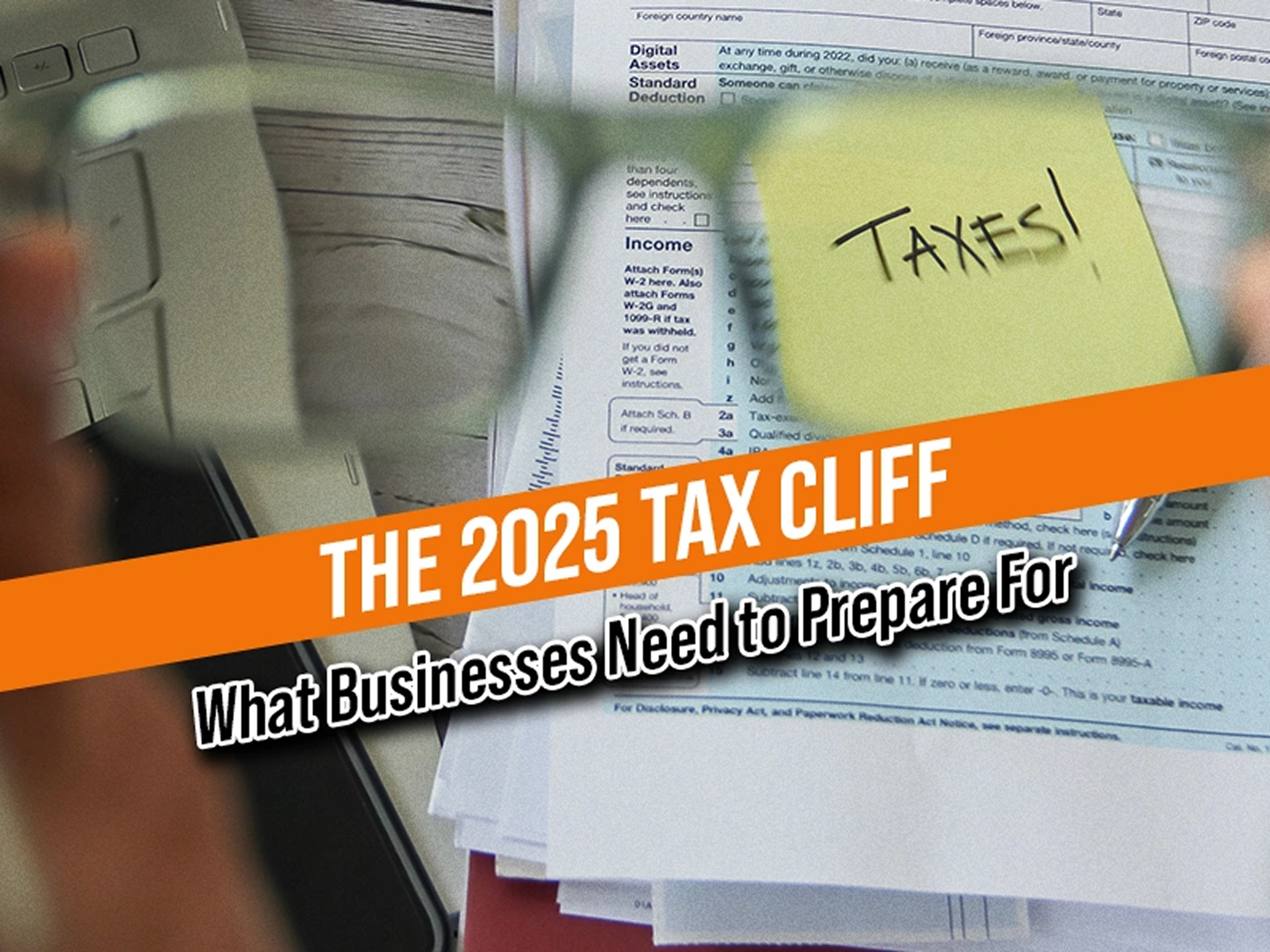
As key provisions of the Tax Cuts and Jobs Act (TCJA) of 2017 are set to expire at the end of this year, businesses are bracing for a significant shift in the tax landscape. This prevailing air of uncertainty stemming from the prospect of TCJA provisions expiring has been dubbed the 2025 Tax Cliff. While most corporate tax provisions introduced by the TCJA remain permanent, a handful set to expire this year will require legislative action to ensure clarity and continuity. In the absence of legislative action, the expiration of these provisions could mean higher tax liabilities and financial strain for businesses as well as individuals. Hence, business owners must proactively plan for any eventuality arising from the expiry of the TCJA provisions, including increased costs, reduced deductions, and compliance challenges.
Understanding the Looming 2025 Tax Cliff
The TCJA introduced several tax benefits, including lower corporate tax rates, expanded deductions, and bonus depreciation. However, many of these provisions were designed to be temporary due to long-term fiscal constraints and are set to sunset at the end of 2025, unless Congress intervenes. At the time of drafting this blog, the House Ways and Means Committee has approved a bill extending several TCJA provisions scheduled to expire in December. The bill will next be forwarded to the House Budget Committee for inclusion in the broader budget reconciliation package before proceeding to a Senate vote before it becomes law.
Key Expiring TCJA Provisions
1. Phase-Out of Bonus Depreciation: Under the TCJA, businesses could deduct 100% bonus depreciation on assets that had a useful life of under 20 years. However, this benefit began the phase-out process in 2023, which will be completed by 2026. This means companies will need to revert to traditional depreciation schedules, which could discourage capital investments and impact cash flow management.
2. Interest Deduction Limits: The TCJA allowed businesses to deduct interest expenses up to a certain threshold, but stricter limitations will take effect post-2025 if the provision is not extended or amended. This could particularly affect highly leveraged companies that rely on debt financing, making borrowing more expensive and reducing overall financial flexibility.
3. Loss of Qualified Business Income (QBI) Deduction: Small businesses and pass-through entities currently benefit from a 20% deduction on qualified business income. If this deduction expires, these businesses may face higher taxable income, reducing their ability to reinvest in growth and expansion.
4. Changes to Individual Tax Rates for Business Owners: Business owners filing as individuals may see higher personal tax rates, affecting their take-home income. This could lead to reduced consumer spending and impact small business owners who rely on lower tax rates to maintain profitability.
5. Changes to Estate Tax Exemptions: Individuals with high net worth and family-run businesses could be significantly impacted by changes to the estate tax exemption limits. Unless acted on by the Senate, the estate tax exemptions in 2026 will return to levels before the TCJA came into effect. This would impact the succession plans of family-owned companies.
How Businesses Can Prepare
1. Maximize Expiring Deductions: Businesses should take advantage of remaining TCJA benefits before they expire. This includes accelerating expenses, utilizing bonus depreciation while it lasts, and optimizing deductions to reduce taxable income before the new tax rules take effect.
2. Evaluate Capital Expenditures: Companies planning major investments in equipment or property should consider fast-tracking purchases to benefit from current depreciation rules. Delaying investments until after 2025 could result in higher tax liabilities due to the phase-out of bonus depreciation.
3. Strategic Tax Planning: Consulting with tax professionals is crucial to explore alternative tax strategies. Businesses should assess whether restructuring, adjusting financial models, or shifting income timing could help mitigate the impact of expiring provisions.
4. Monitor Legislative Changes: As discussed previously, political negotiations are underway regarding the TCJA expiring provisions, and some provisions are set to be extended or modified. Staying informed about potential tax policy updates will help your business adapt its strategies accordingly and avoid unexpected financial setbacks.
The 2025 Tax Cliff presents both challenges and opportunities for businesses. While higher tax liabilities may seem daunting, early preparation and strategic planning can help companies navigate these changes effectively. By taking action now, businesses can safeguard their financial health and position themselves for long-term success.
Secure Your Business Against the 2025 Tax Cliff with Finlotax
At Finlotax, we specialize in proactive tax planning and strategic solutions that make contending with the 2025 tax Cliff less daunting. We can help you maximize deductions, minimize liabilities, and stay ahead of regulatory changes so that your financial future stays protected. Don't let tax uncertainties disrupt your growth. Partner with Finlotax by reaching out to us at 4088229406 for expert guidance tailored to your business needs.

